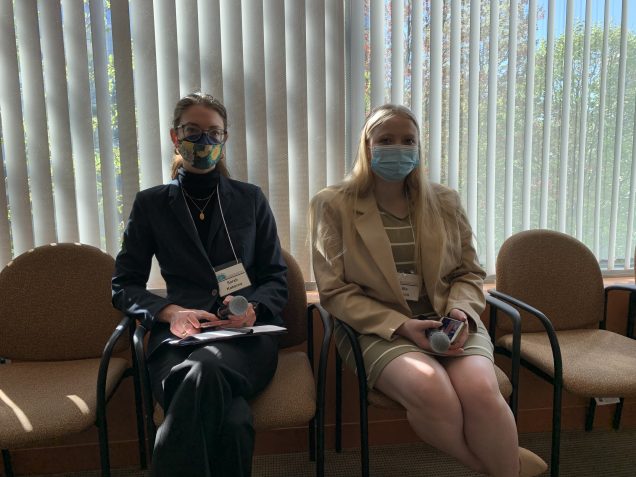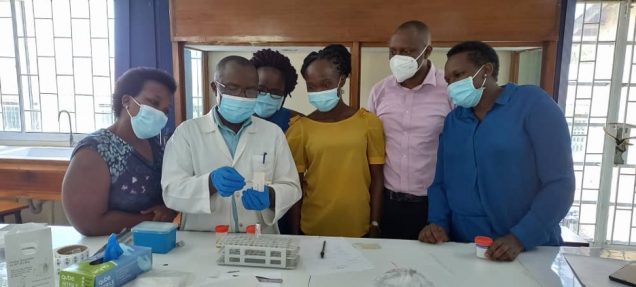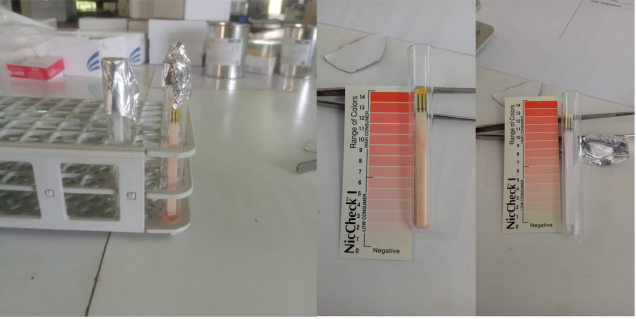International URBAN ARCH Center Core and Project Updates

The International URBAN ARCH Center Administrative Core has been busy coordinating study start up activities for the first year of the newly funded International URBAN ARCH Center. Earlier this year, the Admin Core planned and held the first International URBAN ARCH Center Annual Meeting. This event was a hybrid event that was held both virtually and in Boston, MA. The Admin Core was happy to host colleagues from around the world after almost two years of not meeting in-person. For more information on the meeting and some key takeaways, please check out our main story!
The Admin Core has hosted multiple events for members of the International URBAN ARCH Center Training and Mentoring Program and affiliated investigators and staff. The Core has hosted two visiting scholar research in progress events since the beginning of this year, each on a NIAAA-funded P01 HIV/Alcohol Center. You can watch the presentation by Dr. Karen Cropsey on the ZAMBAMA grant here, and the presentation by Dr. Sylvie Naar and Dr. Karen MacDonell on the SHARE Program here. The Training and Mentoring Program has also hosted investigator led workshop events, created opportunities to present abstracts at meetings, scheduled monthly investigator office hours, and coordinated individual one-on-one mentoring meetings with investigators. The Admin Core looks forward to hosting many more events for current and new trainees in the future. If you are interested in joining our Training and Mentoring Program, please click here.
In the URBAN ARCH Sample Repository, the Admin Core has been busy receiving and sending samples over the past few months. Shipments have been sent to Louisville, Kentucky and Boston, Massachusetts, and have been received from Toronto, Canada, Burlington, Vermont, and Boston, Massachusetts. Samples and data from our repositories are available to those who are interested. Please visit our Data and Sample Repository page linked here for more information, and please do not hesitate to reach out to Natalia Gnatienko for more information if you are interested in working with our samples or data. We encourage your interest and look forward to future collaboration!
The Biostatistics and Data Management (BDM) Core has been actively working to help each Center project prepare for their study launch. BDM Core members have been closely involved in overcoming study design issues to help move each project forward. In addition, the BDM Core has collaborated closely with SPIRIT study investigators on the development of assessments and data collection forms for the study. We have also prepared materials for data sharing via the NIMH Data Archive (NDA) site, including organizing and developing data structure materials (questionnaires, meta data) for upload. We also worked closely with the Admin Core in the planning of the first annual International URBAN ARCH Center meeting and had the opportunity to present on our role in the new Center.

The TB Risk by Alcohol Consumption (TRAC) study will examine the risk of acquiring TB infection and of incident active TB disease among PLWH with heavy alcohol use after receipt of TB preventive treatment (TPT) in PLWH in Uganda, a high HIV/TB country. Our goal is to inform interventions to reduce the risk for acquiring new TB infection in this group, including behavioral interventions to reduce alcohol use, and TPT strategies, such as repeat short-course TPT to prevent active TB disease. First, we propose to examine the acquisition of new TB infection by level of alcohol use among a cohort of PLWH with prior negative tuberculin skin test (TST) results, in a sample of PLWH enriched for heavy alcohol use (Aim 1). We will re-enroll 500 prior study participants, who tested TST negative, and screen for new TB infection (TST conversion and/or newly detected active TB disease) at re-enrollment and then yearly. Half of those re-enrolled will engage in high-risk alcohol use (defined as AUDIT-C ≥6 and/or alcohol biomarker phosphatidylethanol ≥200 ng/mL). Using this cohort, we propose to estimate the risk ratio for high-risk alcohol use versus lower-risk or no alcohol use on acquiring new TB infection (Aim 1a) and examine potential mediators of the relationship between level of alcohol use and acquiring new TB infection (Aim 1b).

We will also determine whether PLWH who engage in heavy alcohol use and have LTBI are at increased risk of progressing to active TB disease, despite receipt of TPT, compared to persons engaging in lower risk or no alcohol use (Aim 2). We will conduct yearly record reviews for all prior study participants who were TST positive and received INH in our studies (n=990), to estimate TB disease incidence (over 5000 person-years) among PLWH engaging in high-risk vs. lower-risk or no alcohol use. We will adjust for confounders and examine the role of TPT adherence.
We successfully launched the TRAC study in the field in March 2022. This was a milestone, as the US-based team, including the PI, Judy Hahn, were remote. Prior to the launch, we obtained all regulatory approvals from Mbarara University of Science and Technology (MUST), University of California San Francisco (UCSF), and Uganda National Council for Science and Technology (UNCST) in Uganda. Staff training was completed both remotely with the US-based team and via in-person sessions led by Dr. Winnie Muyindike, the Ugandan Co-I, and Christine Ngabirano, the study coordinator. Our data collection software, REDCAP, was implemented along with tracking databases for participants and laboratory specimens developed by the study team.
As of June 10, 2022, we have attempted phone contact of 82 prior study participants for Aim 1 TRAC study screening. We reached 72 participants and invited all of them for screening. We have screened 72 participants and found 69 to be eligible and 1 person declined. Therefore, we have enrolled 68 into the study (19 in the no alcohol consumption group, 16 in the low/moderate alcohol use group, and 33 in the high-risk alcohol use group). All enrolled participants have completed baseline procedures including questionnaire, biological specimen collection for dried blood spot (DBS) preparation and storage for PEth testing, and urine collection for real time cotinine testing, and PPD placement. Of the 68 (36 females and 32 males) enrolled participants, 60 have TST negative results following placement and reading of TST within 72 hours and 8 have received a positive TST result.
SPIRIT Project
The St Peter HIV Infection Respiratory Impairment and Tuberculosis (SPIRIT) study is an observational cohort study seeking to understand the impact of alcohol use on post-tuberculosis lung disease among people with HIV. The study team has spent the past 8 months developing study protocols, working through logistics, submitting IRB amendments, developing and translating assessments, and meeting with various study team members. We have been working closely with the BDM Core, who has been building the data collection and management systems for the study and adapting these systems as changes have been made to the study design.
For the qualitative aim of this study, we are seeking to understand the barriers and facilitators to alcohol and smoking reduction interventions for people with TB and HIV. For this aim, we plan to qualitatively interview both patients and providers. We have been developing our sampling table and qualitative guides and look forward to beginning data collection on this aim after initiating the main portion of the study.
The team has been discussing ways that we can disseminate knowledge prior to data collection via literature reviews and opinion pieces. We also are actively looking for supplement opportunities.
The team has and will continue to discuss the impact and implications of the Russian invasion in Ukraine on the study and any of our team members. We grieve for our colleagues from Ukraine and hope that our scientific collaborations with both Russia and Ukraine will be able to provide a window of opportunity for discussions of peace. If you have concerns, please feel free to reach out to Project Lead Kaku So-Armah (kaku@bu.edu).